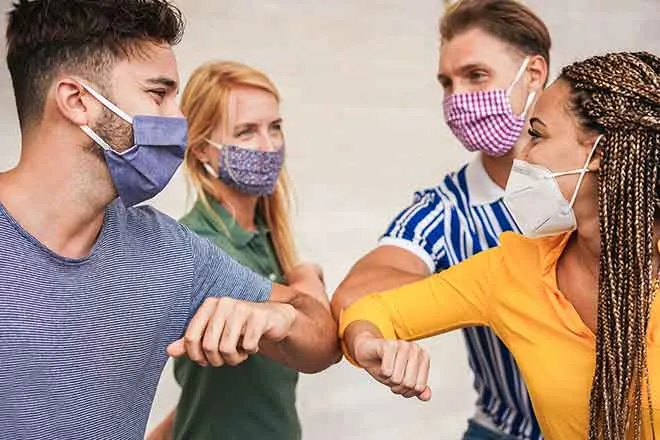
Daily Audio Newscast - July 26, 2024
News from around the nation.
VP Harris addresses educators at national convention in Houston; Recent SCOTUS ruling impacts Virginia and nation; California advocates raise awareness for Disability Pride Month; Rural Minnesota communities gain expanded public transportation options.
Transcript
The Public News Service Daily newscast July 28th, 2024.
I'm Mike Clifford.
Thousands of teachers, support staff, school nurses and bus drivers heard from Vice President Kamala Harris Thursday at their convention in Houston.
The American Federation of Teachers was the first union to endorse Harris in her bid to be the Democratic presidential nominee after President Joe Biden dropped out of the race earlier this week.
During her keynote speech, Harris spoke about the importance of teachers.
By nature, you are visionaries.
The work you do is about a focus on the future.
You see the potential in every child.
You foster it, encourage it, and in so doing, you shape the future of our nation.
This was Harris' first trip to Texas since becoming a presidential candidate.
I'm Freda Ross reporting.
Next, from the New York Times, Vice President Harris begins a 103-day sprint for the presidency in a virtual tie with former President Trump.
That's according to the latest New York Times' Santa College poll.
That, as her fresh candidacy, was quickly reuniting a Democratic party that had been deeply fractured over President Biden.
That from the New York Times.
The report just days after Biden abandoned his campaign under pressure from party leaders, the poll showed Democrats running behind Ms.
Harris as the presumptive nominee, with only 14 percent saying they would prefer another option.
And recent Supreme Court rulings are impacting Virginia and the nation.
Climate advocates say the court overstepped its bounds in ruling the Environmental Protection Agency's Good Neighbor rule was improperly enacted and repealing the so-called Chevron deference.
Without it, judges have to rule on ambiguous regulatory laws with no agency expertise.
Greg Segal with Evergreen Action says the court is diminishing the capacity of Virginia's federal climate partners like the EPA.
By creating room to attack, for instance, carbon standards for power plants federally that Virginia might want to implement, or by making it harder for U.S.
EPA to move us toward electric vehicles that would create jobs in Virginia and that would, you know, clean up the air, especially in northern Virginia with so much congestion.
He adds this creates an opportunity for states to lead on climate action.
But partisan opinions on climate change vary across the country.
In Virginia, this means mixed efforts from utility companies and lawmakers.
Dominion Energy is developing offshore wind, but it's also pressing on with a natural gas plant residents vehemently oppose.
These rulings, coupled with decisions on presidential immunity and what constitutes bribery, have eroded the Supreme Court's perception of impartiality.
Polls show most Americans across party lines feel the court puts political ideology first.
I'm Edwin J. Vieira.
Advocates say that some of the top issues for the next presidency will be improving grid interconnection of clean energy projects and approving certain reforms for the Supreme Court.
This is Public News Service.
July is Disability Pride Month, and today is the 34th anniversary of the signing of the Americans with Disabilities Act.
Federal data show that more than 42 million Americans have a disability affecting their cognition, mobility, hearing, vision, or ability to provide self-care or live independently.
Joe Xavier is director of the California Department of Rehabilitation, which helps people with disabilities thrive at work.
Studies over and over demonstrate that people with disabilities are a very solid part of our workforce.
They stay in their jobs.
They're committed to the work that they do.
And so there's much less turnover, thereby reducing the cost and all the work associated with that.
Advocates say companies are responsible for providing accommodation in the same way they provide chairs and technology for all their workers.
I'm Suzanne Potter.
The Centers for Disease Control is working to reduce health disparities among adults with disabilities who have higher rates of smoking, obesity, heart disease, and diabetes.
And traveling around rural Minnesota can be difficult, but in more than half the state, nonprofit transit systems are helping people get where they need to go.
Arrowhead Transit will begin service in the Hibbing area on August 1st.
The system already delivers fixed route and on-demand services to residents across northeastern Minnesota, from the Canadian border to the northern suburbs of Minneapolis.
A different service, TriCAP, provides service in five east-central counties.
Dominique Olivante with Arrowhead Transit says they're committed to serving rural Minnesotans.
We are the largest rural transportation system in the state of Minnesota and the second largest in the country by land mile.
We cover over 23,000 square miles, which is larger than the state of Vermont.
The services are operated under the authority of the Federal Transportation Administration and the Minnesota Department of Transportation.
Mark Richardson reporting.
Finally, our Shantia Hudson lets us know as summer winds down and North Carolina students prepare to return to school, the focus shifts to the urgent need for better funding for public education.
The future of North Carolina school funding may hinge on Leandro versus North Carolina, a decades-long court battle about the financial challenges many districts face.
Matthew Ellenwood directs the education and law project at the North Carolina Justice Center.
He stresses the crucial role of state funding in ensuring a quality education for every child.
We're waiting to see what the decision will be for that, but there's a lot at stake for families who are feeling this lack of resources in their schools locally, and people need to understand the huge role that the state plays in funding our schools locally because of what our constitution says and the rights that it provides to families.
North Carolina ranks 49th in the U.S. for school funding.
This is Mike Clifford and thank you for ending your week with Public News Service.
We are member and listener supported.
Hear us on radio stations big and small, your favorite podcast platform and find our test indicators at publicnewsservice.org.

















